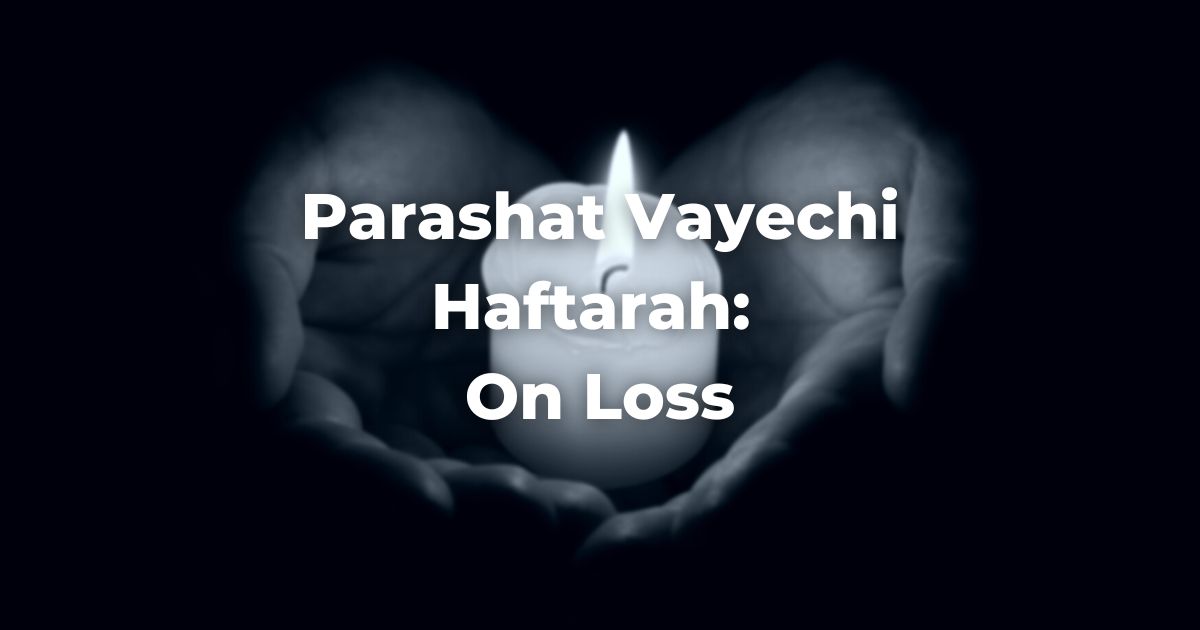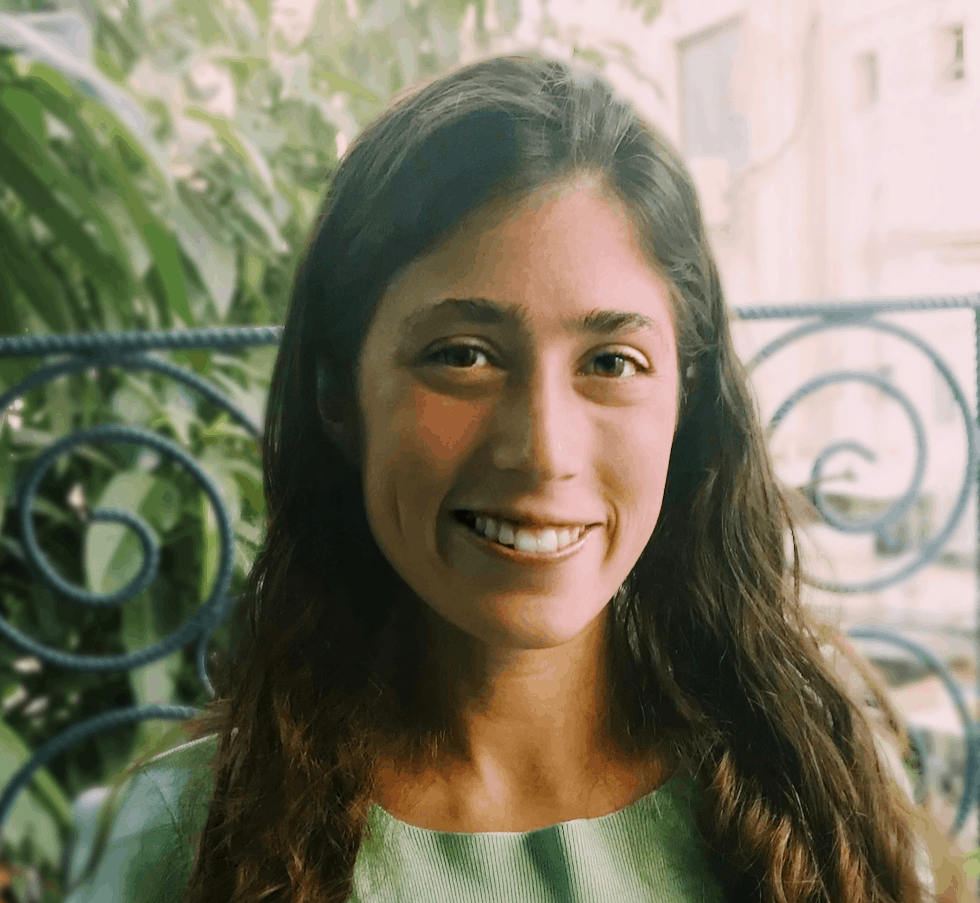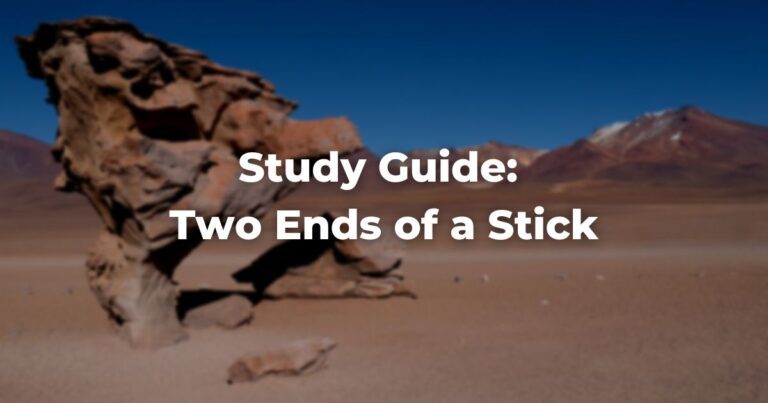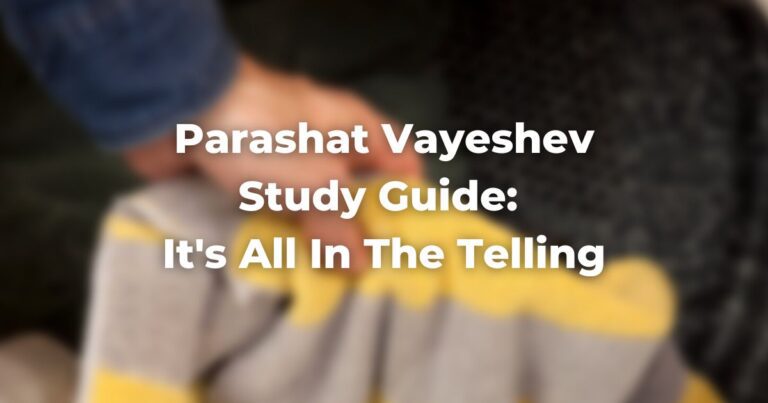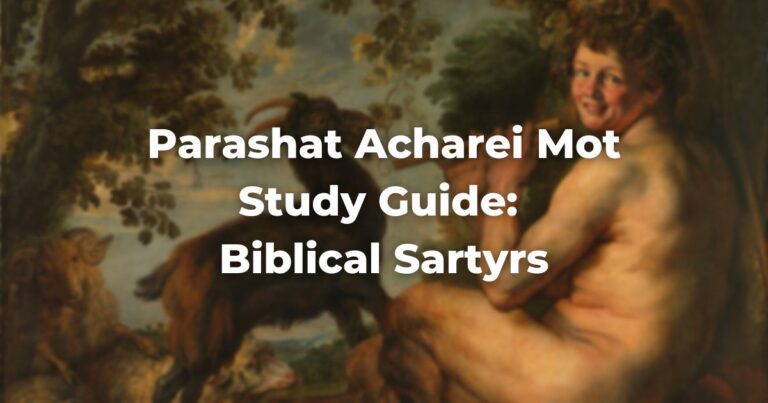Parashat Vayechi Haftarah
King David is very familiar with death and loss.
He begins his reign with the heart rendering lament over his predecessors, King Saul and Jonathan, in disbelief over “how the mighty have fallen.”
This idea of reversal, of the strong being dispossessed, of even the vivacious returning to dust, becomes well-known to David. He kills his fair share of men, including two-hundred Philistines whose foreskins he collects. But the deaths that strike David the hardest are the deaths of his children.
King David mourns three of his children.
When his first child by his beloved wife, Bat Sheva, falls ill, David begins mourning rituals. Later Amnon, David’s firstborn, is killed by his own brother, Absalom, and David “mourned his son for all his days.” Absalom is then killed in rebellion against David and we read the words wrenched from David upon hearing the news: “My son, Absalom, my son, my son, Absalom. Who will give me death, me in place of you? Absalom, my son, my son.”
In this week’s haftarah portion, 1 Kings 2, we encounter David on his deathbed.
He knows he is dying.
As he says, he is “going the way of all the earth.”
We know David is infirm.
We have read in the previous chapter of his failing body, his confused mind, and his loss of ability to control his kingdom. Unlike his infant son or Amnon and Absalom in the prime of their lives, David is aware of his coming death. He makes himself ready. And perhaps, his readiness comes as a result of having already lost so many loved ones.
In this week’s parashah, we read the final chapter of Jacob’s life.
He too is a father who mourns a child. As I wrote about in Torah Sparks Vayetzei, Jacob is totally consumed by the supposed death of his son, Joseph. His reaction is to release his hold on life. Jacob is determined to descend to Sheol in mourning, to cut himself off from the world of the living emotionally.
He refuses to be consoled, refuses to go on living.
David, however, has persevered.
After the deaths of three beloved sons, David has continued to rule, continued to function in this world. When the death of Absalom nearly destroyed him, he had a strong enough support network of people to anchor him to this world, to remind him that he was needed here.
He provides a welcome contrast to Jacob, a model of what it means to continue to live after the unthinkable.
But there is something beautiful about reading Jacob’s mourning and loss back into David.
In this week’s parashah and haftarah, Jacob and David, each about to die, leave instructions for their successors.
Jacob, having been reunited with the son he thought he had lost forever, leaves instructions on how his own body should be reunited with the bones and land of his predecessors after his death.
Joseph will also follow suit when contemplating his own death, leaving similar instructions for how his remains should be treated.
David leaves Solomon a promise to follow in God’s ways and a hit list of people to kill, using his wisdom. Solomon will not ultimately be successful in following in God’s ways, although he does take care of the hit list. As we struggle to make sense of David’s behavior here, we can read his understanding of mourning into it. David leaves this world consciously, joining the sons taken before their times.
He wants to tie up loose ends and give Solomon meaning, something to do so that Solomon will not feel upended by the loss of his father the way that David and Jacob felt upended by the loss of the sons.
See more: Parashat Vayechi
Originally posted as part of the Conservative Yeshiva at the Fuchsberg Jerusalem Center’s Torah Sparks. Support Torah learning from the Fuchsberg Jerusalem Center/Conservative Yeshiva for leaders and seekers around the world here.
Authors
-

Bex Stern Rosenblatt is the Conservative Yeshiva’s Faculty-in-Residence for the Mid-Atlantic Region of the United States, teaching Tanach, using the techniques of close-reading, theater, feminist readings, and traditional commentators. Bex also directs the CY’s recruitment efforts in North America. After finishing her B.A. in History and German at Williams College, Bex received a Fulbright Grant to Austria. She later earned an M.A. in Tanakh from Bar Ilan University and has also studied at the Conservative Yeshiva and Bina Jerusalem. Bex is the founder of Havruta Tel Aviv, an organization that facilitates guided pair-learning of the Tanakh.
-



The Fuchsberg Jerusalem Center (FJC) is a home in the heart of Jerusalem where leaders and seekers can find an authentic place in Jewish tradition to call their own. FJC offers opportunities to study, pray and explore within an egalitarian and inclusive setting, creating multiple pathways for finding personal and communal meaning.
